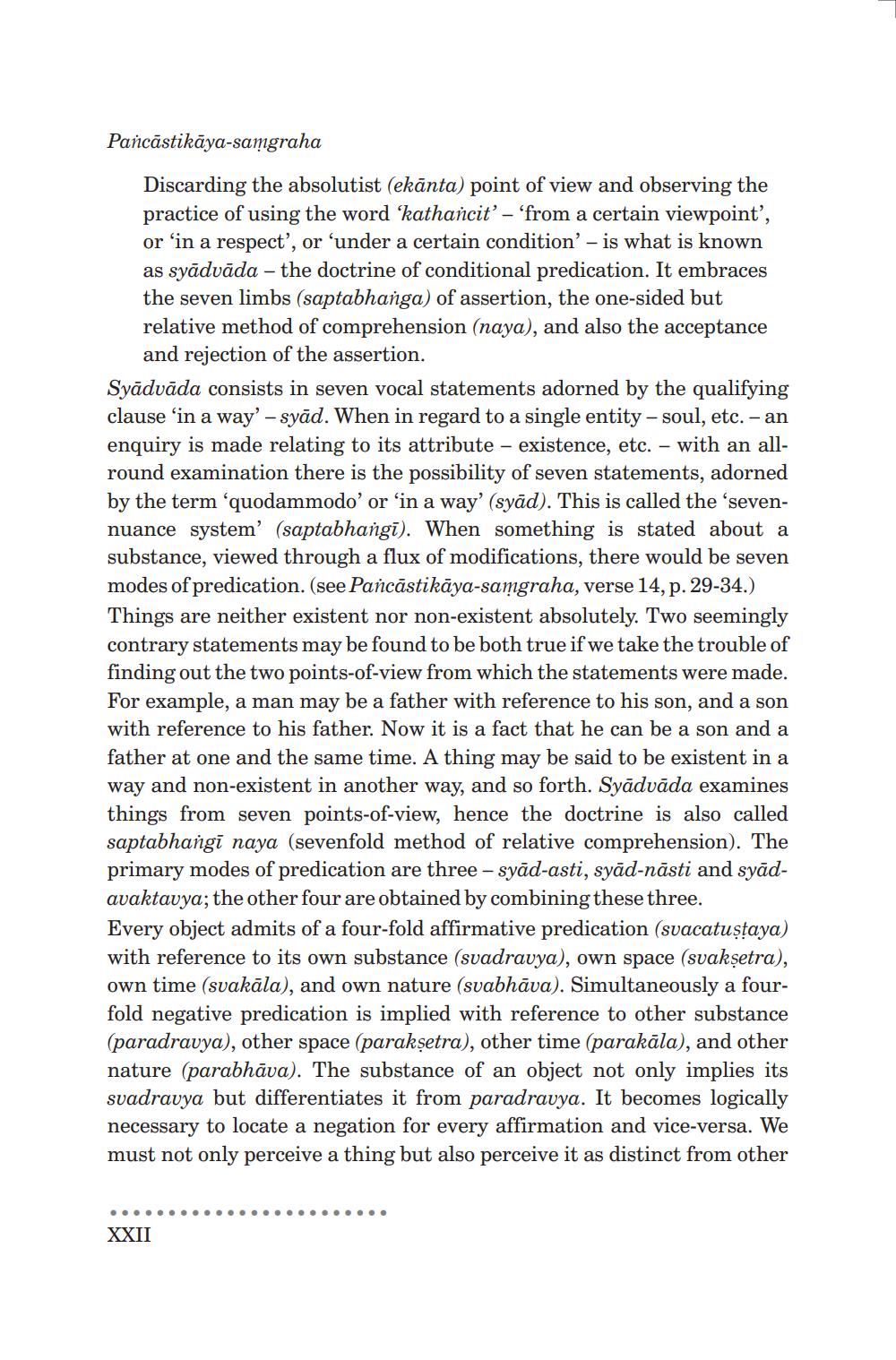________________ Pancastikaya-samgraha Discarding the absolutist (ekanta) point of view and observing the practice of using the word 'kathancit'-'from a certain viewpoint', or 'in a respect', or 'under a certain condition' - is what is known as syadvada - the doctrine of conditional predication. It embraces the seven limbs (saptabhanga) of assertion, the one-sided but relative method of comprehension (naya), and also the acceptance and rejection of the assertion. Syaduada consists in seven vocal statements adorned by the qualifying clause 'in a way' - syad. When in regard to a single entity - soul, etc. - an enquiry is made relating to its attribute - existence, etc. - with an allround examination there is the possibility of seven statements, adorned by the term 'quodammodo' or 'in a way' (syad). This is called the 'sevennuance system' (saptabhangi). When something is stated about a substance, viewed through a flux of modifications, there would be seven modes of predication. (see Pancastikaya-samgraha, verse 14, p. 29-34.) Things are neither existent nor non-existent absolutely. Two seemingly contrary statements may be found to be both true if we take the trouble of finding out the two points-of-view from which the statements were made. For example, a man may be a father with reference to his son, and a son with reference to his father. Now it is a fact that he can be a son and a father at one and the same time. A thing may be said to be existent in a way and non-existent in another way, and so forth. Syaduada examines things from seven points-of-view, hence the doctrine is also called saptabhangi naya (sevenfold method of relative comprehension). The primary modes of predication are three - syad-asti, syad-nasti and syadavaktavya; the other four are obtained by combining these three. Every object admits of a four-fold affirmative predication (svacatustaya) with reference to its own substance (svadravya), own space (svaksetra), own time (svakala), and own nature (svabhava). Simultaneously a fourfold negative predication is implied with reference to other substance (paradravya), other space (paraksetra), other time (parakala), and other nature (parabhava). The substance of an object not only implies its svadravya but differentiates it from paradravya. It becomes logically necessary to locate a negation for every affirmation and vice-versa. We must not only perceive a thing but also perceive it as distinct from other XXII




